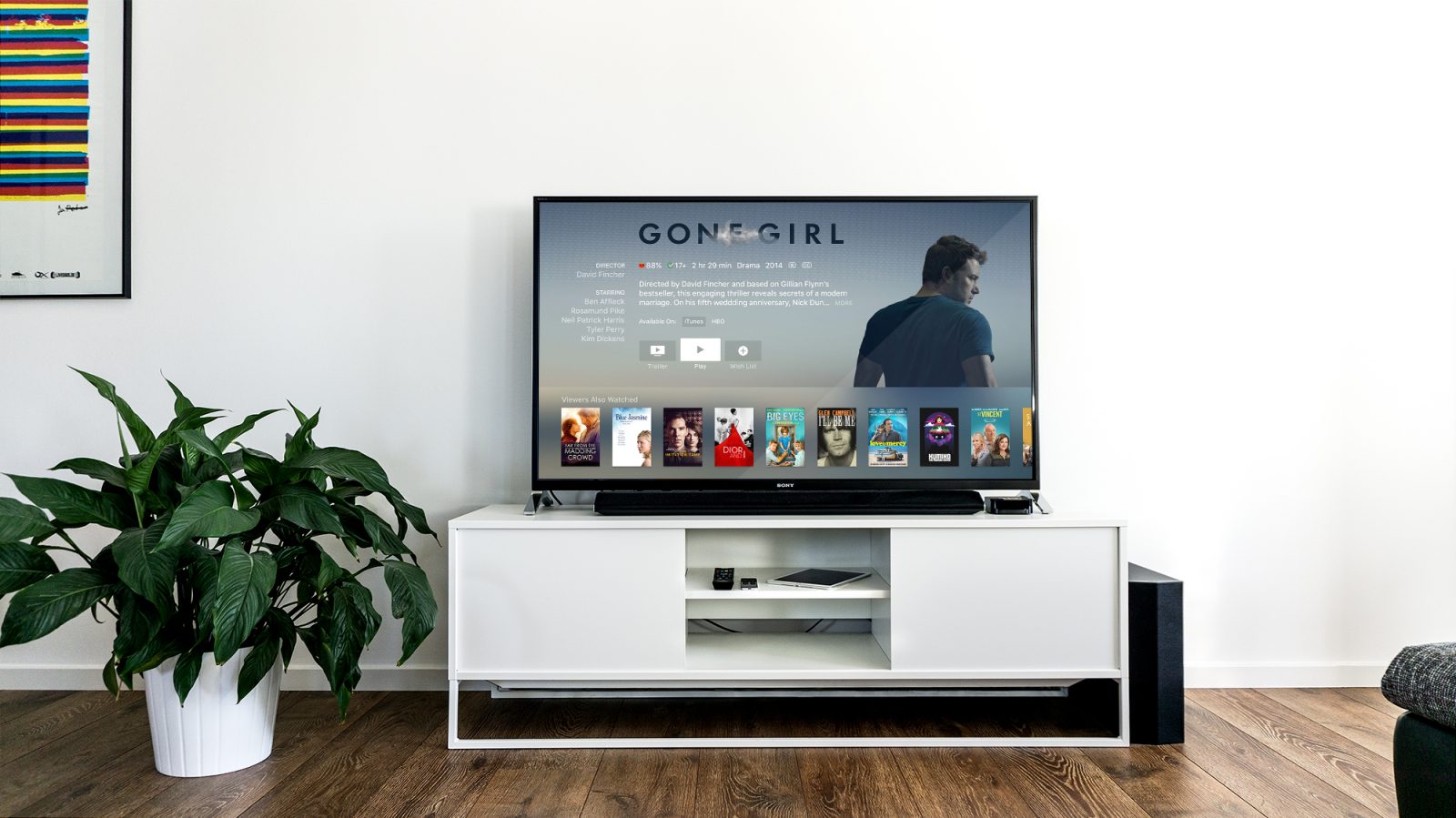The average TV fan will sit through an eye-popping 78,705 hours of soaps, sports, news, movies and box sets during their lifetime, a study has found.
A poll of 2,000 adults revealed that an average of three-and-a-half hours a day is spent watching television – a total of 1,248 hours a year.
Over the average adult lifetime, this will mean TV fans will immerse themselves in 3,639 films in the comfort of their own home, as well as watching a staggering 31,507 episodes of TV shows.
But the average household will have two arguments a week over what to watch and more than half of those polled would struggle if they only had one TV between them.
As a result, the research by LG Electronics found the typical British home has two TVs, upgrading their set every six years on average.
It also emerged a quarter of those polled said their viewing experience is ‘ruined’ by the quality of their TV, so they will often venture elsewhere, such as a friend’s house or the pub, in search of a superior screen.
James Thomas, home entertainment product manager at LG UK said: “The Golden Age of Content is here, but similar to the golden age of film and cinema, it won’t be fully appreciated until it’s over.
“Everyone has a favourite series to sink into at the end of a day, but many are missing out on the full experience due to the limitations of an old TV.”
The study also found that six in 10 adults went as far as to say they would be lost without their television set.
But poor sound quality and glare on the screen are among the nation’s biggest bugbears.
People talking over a favourite show, others asking questions and poor visual quality were also among the greatest annoyances, according to the OnePoll research.
Fifteen per cent also said they get frustrated by having too much choice, with adults spending an average of 2,943 hours over their lifetime browsing and deciding what to watch.
And following a decision, they will watch 11,278 different series over a lifetime – whether that’s just one episode or an entire boxset.
After revealing the nation’s love of TV, LG partnered with Realeyes – the world’s leading ‘emotion AI’ company – to conduct an experiment on identical twins which compared the differences between physical and emotional response when watching Game of Thrones on a 2019 LG OLED TV verses a 2013 LED TV.
The experiment was performed on identical twin social media influencers, Henry and William Wade, at the LG UK test facility in Weybridge.
The twins were separated into blacked-out TV immersion rooms where they simultaneously watched ‘The Battle of the Bastards’ – IMDB’s highest-rated Game of Thrones episode – on the different TVs.
William watched on a 2019 set, while Henry viewed a 2013 TV, representing the most common type of TV in homes across the UK.
Realeyes’ AI platform analysed the facial expressions, head movements and body language from more than 144,000 frames of video footage captured of each twin.
Their physical responses were also measured using heart rate monitors.
The results revealed the 2019 OLED TV held 25 per cent more attention than the 2013 LED, and throughout the episode, 27 emotional peaks were observed on the newer TV compared to just four peaks on the older model.
Happiness, which in the context of the experiment was linked to level of entertainment, was also three times higher.
Overall, the 2019 TV provided a 15 per cent more intense experience from a positive emotional standpoint.
Mihkel Jäätma, CEO and co-founder of Realeyes, said: “This experiment by LG was a really interesting and fun way to utilise our ground-breaking AI technology.
“We’ve taught computers to read and understand human emotions and attention, which allows us to offer scientifically sound measurements of a viewer’s immersion.”







